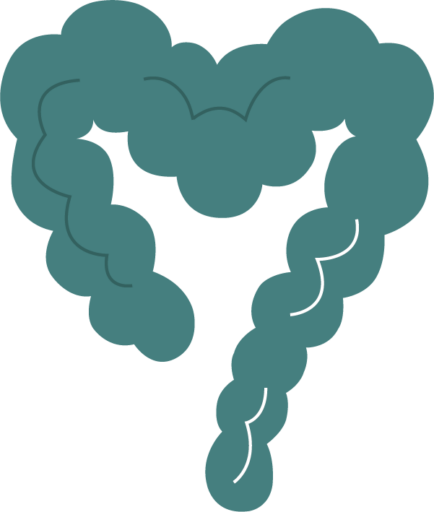
Our 3 best tips for managing IBS-D
In addition to symptoms such as abdominal pain, discomfort, bloating, and gas, most people with IBS have a predominant type of bowel movement over time. Therefore, IBS is classified into three different subtypes based on the type of bowel movements you experience (IBS-D, IBS-C, and IBS-M).
In medical terms, diarrhoea is defined as having more than three loose and watery bowel movements per day. Several factors can cause diarrhoea. One possible reason is that the intestines may be moving too quickly, which sometimes affects people with IBS. This is referred to as IBS-D, or diarrhoea-predominant IBS. In this case, the gut’s signaling system may be slightly misaligned, meaning that the reflexes for bowel movements are heightened, and the urge to use the toilet can become quite urgent. Another cause of diarrhoea could be a temporary infection, such as from a stomach bug or following a course of antibiotics.
Possible Causes of Diarrhoea
Many people experience diarrhoea following a stomach infection, such as when travelling abroad. Sometimes, the stomach doesn’t return to its normal state and remains loose for an extended period afterward. This might indicate an imbalance in the gut bacteria. If the symptoms persist, the condition is often diagnosed as Post-Infectious IBS (PI-IBS), meaning the IBS symptoms began after a gastrointestinal infection.
Diarrhoea is also common when taking antibiotics. Antibiotics can disrupt the gut flora, allowing harmful bacteria to overgrow. To reduce this risk, you can take the over-the-counter medication Precosa, which helps protect the gut flora during antibiotic treatment.
Many women also experience loose stools around their menstrual period. The exact cause is unclear, but it is likely related to hormonal changes. Progesterone levels drop during menstruation, and since high levels of progesterone can cause constipation (as seen during pregnancy), lower levels can result in looser stools.
For those experiencing prolonged diarrhoea, there is a risk of nutrient deficiencies and difficulty maintaining weight. Therefore, it is essential to contact healthcare services if symptoms persist. During severe diarrhoea, especially in children, it is crucial to replace fluids and electrolytes to prevent dehydration.
Diarrhoea is common with IBS
Diarrhoea-dominant IBS is known as IBS-D. For many experiencing a fast-moving gut, symptoms are often worst in the morning. You might recognise the need to visit the toilet several times before work or school, or even skipping breakfast to avoid bathroom trips before lunch. Perhaps you know the location of every toilet in town.
You are not alone!
Many people experience this, and just the thoughts and anxiety about it can trigger symptoms. Sometimes, those with a quick-moving gut may feel an urgent need to go to the toilet during a meal. This happens because the reflexes in the stomach overreact to the food, stimulating bowel movements too much. It can also occur if you eat a very large portion or eat too quickly. Therefore, take your time with meals and consider doing deep breathing exercises daily.
Several dietary factors can speed up digestion. Examples include coffee, nicotine, and alcohol, as well as chewing gum, effervescent tablets with sweeteners, and dried fruits like apricots and prunes. Understanding FODMAPs can help you identify what might trigger your symptoms and why. By following the FODMAP diet step by step, you’ll better understand what affects your gut. Start by eliminating foods marked in red, reducing coffee, nicotine, and alcohol, and observe how your gut reacts. Then, gradually reintroduce foods to find what works.
Probiotic supplements (beneficial gut bacteria) might be worth trying. While research evidence is still limited, some strains of probiotics may help alleviate IBS symptoms.
There are also various medications available to temporarily relieve diarrhoea and loose stools, such as Imodium and Dimor. These can be useful if symptoms are acute or if you need to ensure you’re not affected during an important event. Just knowing you have the medication with you can be reassuring.
Often, managing IBS-D requires addressing multiple aspects. Based on our experience, long-term symptom relief is best achieved by focusing primarily on dietary and lifestyle changes.
Take control of your IBS today!
Are you ready to take control of your life with IBS? Our app provides the tools and guidance you need to effectively manage your IBS symptoms.
Try for freeSofia Antonsson
Reg. Dietitian, Belly Balance
Read more about

IBS - What is it?
Bloated , constipated or having a gassy stomach? IBS or Irritable Bowel Syndrome is a functional gastrointestinal disorder, meaning no physical issues can be found in the stomach or intestines; they just don’t function quite as they should.

How the app works
Download the app and become part of our community. We assist you in achieving a calm and happy stomach through treatment and tools available directly in the app.

About FODMAP
By learning which foods upset your stomach, you can make conscious choices and get quick symptom relief. With the low FODMAP diet, you receive structured assistance in understanding which foods your body tolerates better than others. No more guessing and pondering – you get the answer straight away!

